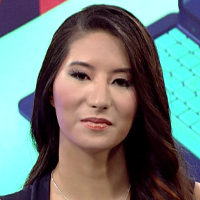On this episode of The Cost of Everything, we take a closer look at the unexpected rise of meme coins, a surprising development for many long-term crypto investors. Join host Christy Ai and Professor Hans G. Despain as they explore why, despite expectations for the trend to wane alongside the memes that birthed them, meme coins continue to thrive. Even a decade after the creation of the first-ever meme coin, Dogecoin, this category of cryptocurrencies shows no signs of slowing down.

On this episode of The Cost of Everything, we take a closer look at the porn industry and how it has become more profitable and mainstream since the rise of single content creators pages like OnlyFans. Host Christy Ai and Lionel from Lionel Media analyze how the AI surge has intensified competition within an already saturated market. Despite the prevalence of free online content, they discuss the industry’s adaptation to changing revenue models, particularly as porn consumption surged exponentially during the widespread adoption of remote work.
While ChatGPT has been widely used around the world for various purposes, The Cost of Everything will analyze the cost to run these AI platforms. Host Christy Ai spoke with author of Artificial Intelligene Basics Tom Taulli about what countries are developing besides OpenAi, how much are they investing in developing and running AI technology, the real advancements on AI performance, and if there is a real push for an Artificial Intelligence World.
In this episode of The Cost of Everything, host Christy Ai delves into the intricate world of waste management, highlighting the transformative advancements in purification technologies. Joined by scientist Dr. Maulin Shah, they explore how these innovations facilitate the swift conversion of wastewater into drinkable water, offering solutions to the pressing issues of water scarcity and environmental degradation. From discussing the critical role of effective wastewater management in ensuring public health and economic resilience in communities worldwide, to examining specific cases like the Middle East, where investments in desalination and cutting-edge treatment methods are imperative for sustainable water practices, this episode sheds light on the multifaceted challenges and promising opportunities in the realm of water resource management.
On this episode of The Cost of Everything, host Christy Ai engages in a discussion with civil rights attorney Robert Patillo on the intricate costs associated with guns in America. Despite the deeply ingrained gun culture enshrined by the Second Amendment, concerns surrounding gun deaths and mass shootings have reignited the national debate. With a majority of Americans advocating for stricter gun laws, attention has been amplified on the economic footprint of the firearms industry, its societal repercussions, and international comparisons on gun control policies. Delving deeper, expert Steve Abramowicz sheds light on the rise of “ghost guns” and the ongoing efforts by both the government and society to combat their proliferation while ensuring a safe environment for legal gun activities.







